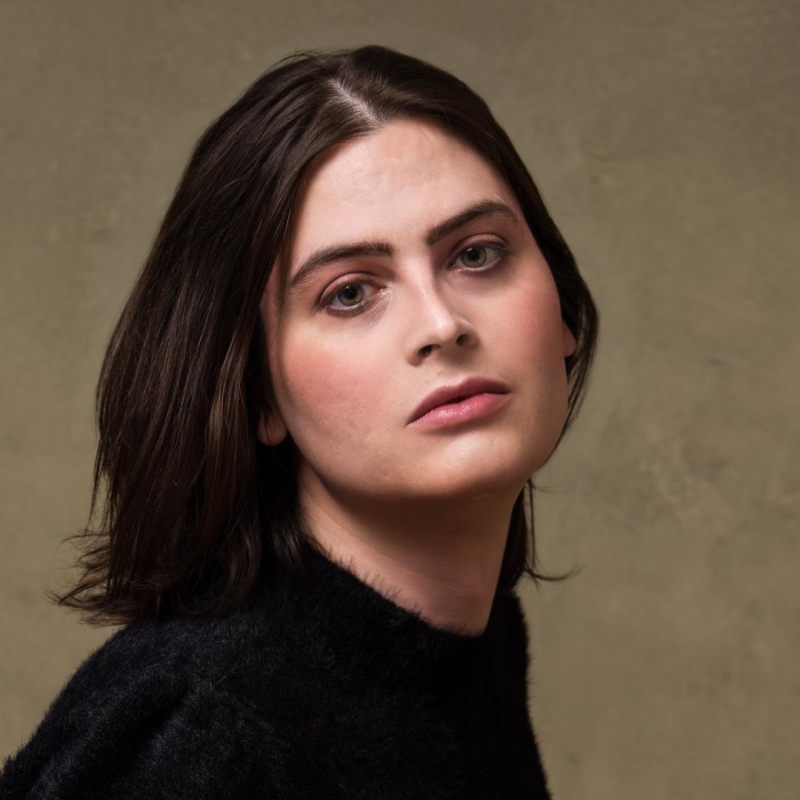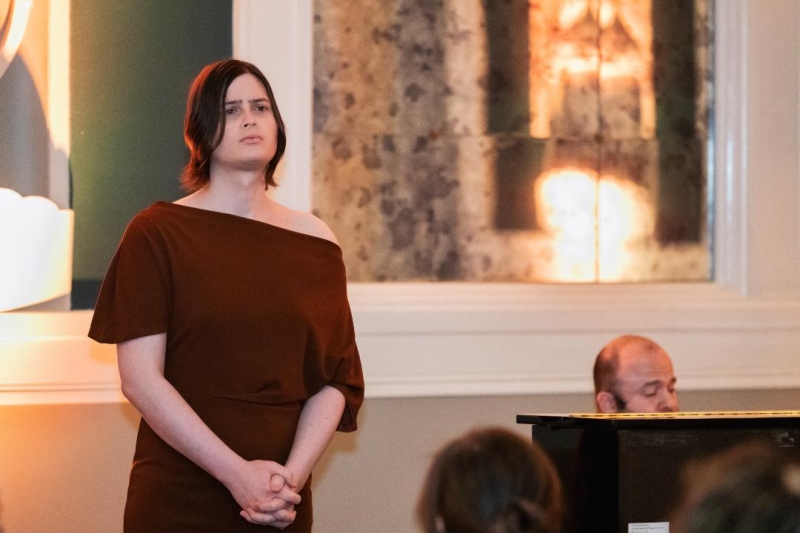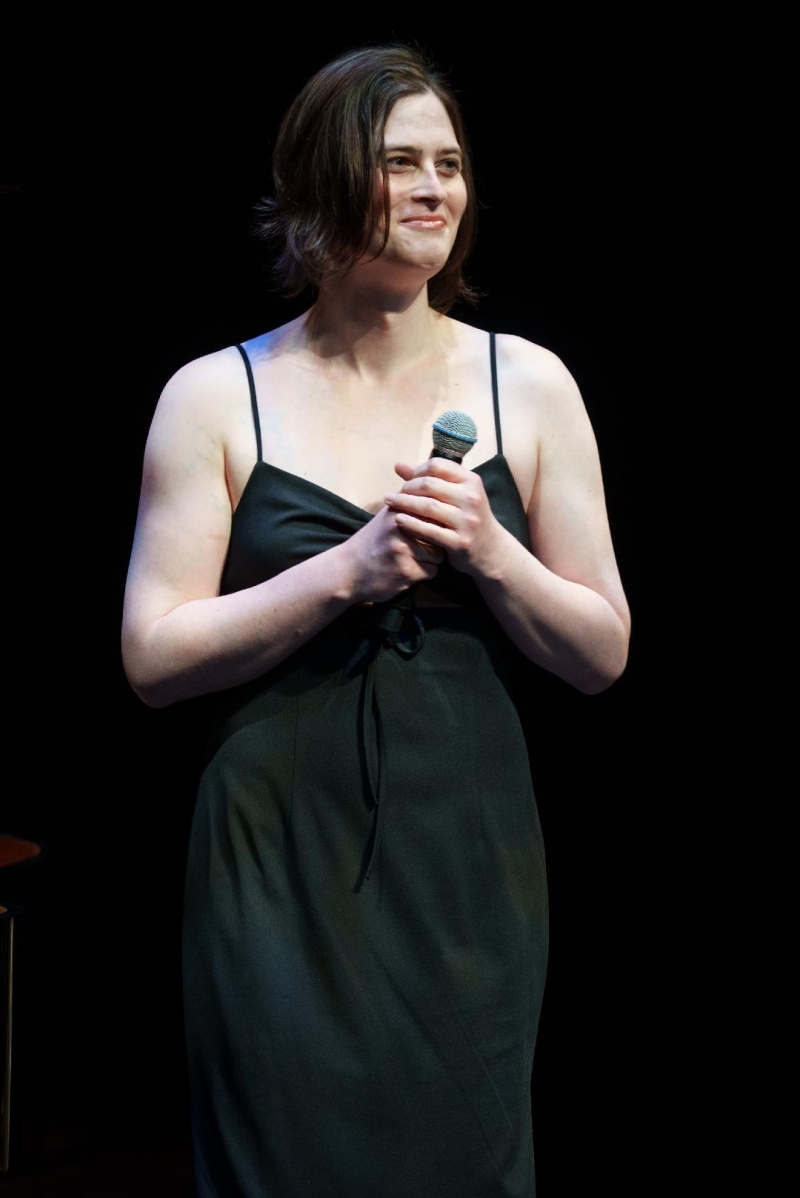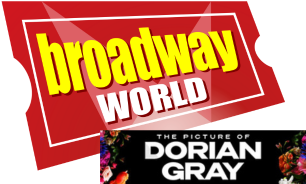Interview: Theatre Life with Katherine Goforth
The transgender female tenor on becoming the inaugural recipient of the True Voice Award and more

Today’s subject Katherine Goforth is someone who can definitely be called a breakthrough artist to be sure. She is the inaugural recipient of Washington National Opera’s True Voice Award for transgender and non-binary singers. She will be making her Kennedy Center debut on May first at 6:00pm with a recital on Millenium Stage.
Goforth was a featured speaker and performer at the Dallas Symphony Orchestra’s fourth Women in Classical Music Symposium where she was chosen to receive the Career Advancement Award by classical singer Julia Bullock, with whom she shared a joint recital. She appeared on a panel entitled “The Burden of Breaking Through” and offered remarks at the keynote event.
Her recent performances have included the tenor solo in Beethoven’s “Symphony No. 9” with Bozeman Symphony, Walla Walla Symphony, and Yakima Symphony, the tenor solo in Puccini’s Messa di Gloria with Vancouver Symphony (USA), Elisabeth Claude Jacquet de la Guerre’s Ester with Byron Schenkman, Spoletta in Tosca with Portland Opera, and roles in two premieres for Seattle Opera’s Jane Lang Davis Creation Lab. She had recent residencies at Boston Conservatory and Whitman College.
Goforth has been active in advocating for the self-determination of trans (and non-trans) performers. Besides the above panel discussions, she has lectured for Renegade Opera, had an essay published by Opera Canada Magazine, and been quoted in Opera America Magazine. She is also a member of the Trans Opera Alliance.
Katherine Goforth is proving that opera knows no boundaries and the possibilities SHOULD be endless. Let’s face it, the arts in general has always been a place where you can express yourself freely. The fact is the opera world is behind the rest of the performing arts genres for inclusivity and that needs to change. Katherine Goforth and others are waging a fight that needs to be won. You can help in the fight by attending her performance at Kennedy Center on May first. The music is going to be glorious and it’s a FREE event so you have no excuse not to go. Just sayin.
What was it about opera that made you want to pursue a career in it over another musical genre?
When I was younger, I pursued opera because I was successful in it. I didn’t feel accepted or like I fit in before I started studying classical singing and winning prizes or recognition. One time a choir conductor told me, “Music is your way.” It definitely helps me make my way through the world.
I used to think that the right way to make classical music was to limit myself to the strictest definitions of European classical music. I don’t want to do that anymore. I’m interested in expansive definitions of opera, in musical theatre, in folk music, in pop music. I don’t want to put opera over anything. I want to sing freely, and sing music that I believe in.
Was there a particular opera you saw as a child that made you say “Hey, I can do this!”?
No. One of the earliest things I knew about myself was that I wasn’t comfortable in classical music spaces and that I couldn’t be myself in them. The only thing that made me feel like I could participate in opera was when I saw a singer who navigated the career in some way that was outside the box – that there might be a way for me to do that, too.
What was your first professional job as a performer?
The first time I got paid for singing was for a funeral, but the first thing that felt like a professional milestone was singing as a guest soloist with Pink Martini when I was in undergrad. My first professional opera job was in the ensemble of Matthew Aucoin’s Crossing, which premiered at American Repertory Theatre in 2015.

Photo courtesy of the artist.
Can you please give us a small idea of what you will be performing at The Kennedy Center on May first for your debut recital at that venue?
All year I’ve been thinking that I wanted to do something that will make a little more space for myself, and maybe for other trans women and trans people in classical music. I’m sick of being asked to play male roles. I look at trans women in pop music, in musical theatre, in theatre, and they get to show up as women. Opera doesn’t let us do that. Trans women with changed voices play men, or we don’t work. So, I’ve been thinking about how it can look to sing women characters, even with a changed voice.
The idea of a voice type being fixed to a particular piece comes along several hundred years into the European classical tradition. One example of this is Handel’s Messiah – the solo movements were rewritten or transposed more than 40 times for various singers, including across gender. It’s only in the 19th century that a strict system of roles and voice types gets constructed, which is also when Europeans start promoting immutable concepts of gender and sexuality. Like classical music’s applause practices, it’s not actually that old.
I’ve been performing arias like Susanna’s “Deh vieni non tardar” from Le Nozze di Figaro, Mimi’s “Mi chiamano Mimi” from La Boheme, and other music written for women to sing, like Wagner’s “Five Poems for a Woman's Voice,” which we usually call the “Wesendonck Lieder”. But I’m also thinking deeply about this question of what kind of art or music do I really want to make, what kind of values do I want my concerts to be about, so maybe there will also be something different on the program.
You are the recipient of the first ever True Voice Award. Can you please tell us a little bit about the award itself and why do you think it’s so important for it to exist?
At this point, opera is the most transphobic space in my life, or the most transphobic space that I haven’t chosen to leave. It’s the only place where I get misgendered, face intrusive questions about the most vulnerable or painful moments of my life, have to defend my needs and experience, am silenced by people in power. It’s the same oppressive workspace that many Americans experience.
It’s important to bring awareness to the exploitation and oppression that trans artists (and many cis artists) face on stage, in the rehearsal room, in the casting process, in professional structures, and in education. There are some people who work in the opera and classical music field who don’t care, but there are others who don’t understand or don’t realize how much we’re being hurt, and who will want to change their practices.
I think the True Voice Award is still evolving as we all come to a better understanding of the needs of trans people in opera and classical music. There are countless positionalities within the trans community, and we’re all having different experiences and therefore have different needs. For me, the TVA has been about legitimizing my presence in the classical music and opera field. It’s helped me connect with many new friends and colleagues. My favorite part has been all the trans people I've been able to meet just because I’ve been easier to find. There are so many trans artists out there, but we usually don’t get to be visibly trans in the arts, and many times, we don’t even know about each other.
The creators of the True Voice Award Mark Campbell, Laura Kaminsky, and Kim Reed got me imagining what I wanted to do with my life in a way I haven't let myself imagine since I got into school. That's been an important part of the award, too.
It’s important to create new spaces where trans people can assert ourselves as human beings – not only getting our survival needs met, but just getting to make the art that we want to make. That rarely happens in the imperialist white supremacist capitalist patriarchal system. It’s important every time a trans artist gets to curate a concert for themselves and sing it fully from their own perspective, and even tell the audience exactly why they’re singing the music they’re singing. We have to imagine the futures we want to live in, and the art we make can be one way of doing that.
Lastly, I’m always thinking about what trans kids are going through – the kids who drop out of choir because of how the director treats them, or who can’t get cast in a show, who come out while they’re studying music in college and then can’t get accepted into a young artist program because the transphobic staffs refuse to learn what to do with trans students. Some cis person’s inability to imagine a world where we exist can ruin our lives. In the documentary The Stroll, Nicole Bowles says, “You owe it to every trans woman before you and everyone after you to keep moving and keep pushing.” That quote echoes in my head every time I’m in an oppressive space. Every trans woman who came before me made it possible for me to live my life, but we still aren’t free. Now it’s my turn to do what I can to make life better for the women coming after me.
Every opera singer has a dream role they would like to sing. What would that dream role be for you?
I don’t have dream roles anymore. I dream of the artistic environment where I’m always treated with respect, where my ideas and perspective matter, where our process starts with questions instead of orders, and where I receive care. I dream of participating in opera as a woman, and I don't have to qualify that with anything.

What other performances do you have coming up in 2024?
I’m writing this in the middle of a rehearsal period for a production of La Traviata in Bend, OR where we’re playing Alfredo as a trans woman character. I’ll do a recital with Chuck Dillard of Queer Opera in Portland, OR and a Beethoven 9 with the Vancouver (WA) Symphony later in May. I have something exciting coming up this summer, but the contract isn’t quite signed, so I have to wait to share about it. Then, in October I’m doing a recital for Stanford Live at Stanford University.
Besides that, I’m working to develop new projects, projects where my characters are women, period, where we don’t have to navigate any cisheteronormative tradition, where we can tell our own stories. I think about when Miss Major said, “People have to self-organize their own places of safety, places where they can experience some freedom. It’s not just that no one else will do it for you, it’s that no one else can. By definition!
Special thanks to Kennedy Center's Senior Press Representative, Classical David Hsieh for his assistance in coordinating this interview.
Theatre Life logo designed by Kevin Laughon.
Comments

Videos

.gif)